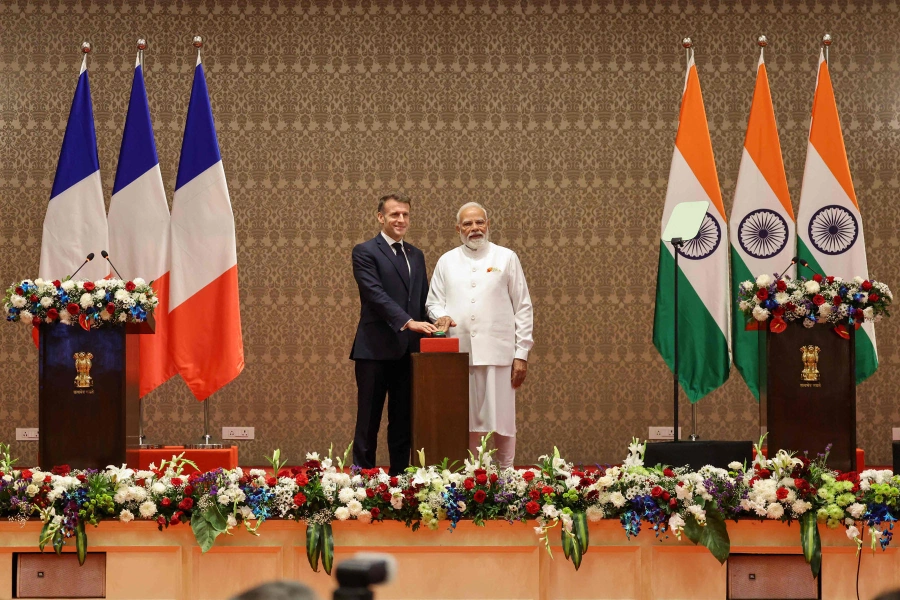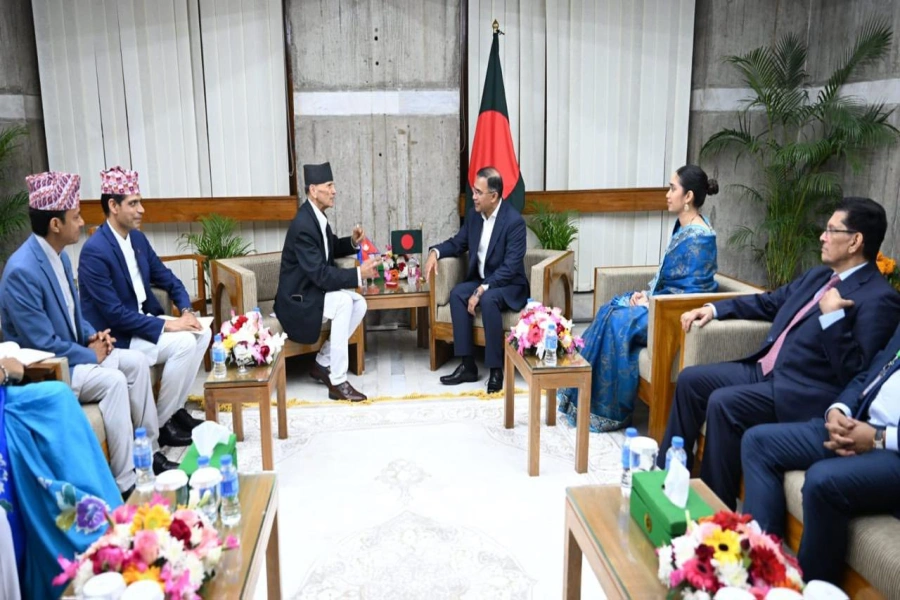The president of the RSP is the rock star face of the party and that face is seemingly blurred.
Now the government in which RSP is participating is led by Maoists, whose main supporter is the CPN-UML. These two parties are known as the core leftist parties in Nepal. RSP, in its document, calls itself centrist and center-right. Here arises a question: Has the extreme desire for power forced the RSP to make an alignment with hardcore left-wing parties?
With the adoption of the constitution of Nepal in 2015, political stability in the country was envisaged. However, almost a decade has passed, and the country has not been able to achieve a stable government. No party has been able to run the government for five years. Throughout this period, anger towards political parties due to enduring political instability among the common Nepali people has mounted. Similarly, under the leadership of erstwhile television anchor Rabi Lamichhane, a new political party, Rastriya Swatantra Party (RSP), was registered on 21st June 2022. Six months after the inception of RSP, the second general election was conducted in Nepal on 20th November 2022, from which the RSP emerged as the fourth-largest party in the federal parliament. However, RSP did not file nominations for the election of the provincial assembly. Today, RSP is in the government. As the fourth-largest party, is the RSP contributing to the country's political stability? Will those who wish and demand an alternative political power in Nepal be able to pin hopes on the RSP? This article will cover these affairs.
RSP seeks explanation from General Secretary Dhakal

When the president of RSP was elected for the first time, questions were raised about his citizenship and passport. There was a case, and the court ruled that Lamichhane should not hold the post of minister, MP, or party president. Consequently, he had to complete the citizenship process and be re-elected. Seeing that the RSP had emerged as the fourth power in the parliament, its supporters kept expressing their opinions that this party should not enter the government and should remain in the opposition.
RSP also started shouting the 'mission-84' slogan, saying that it will appear as the first party from the 2084 election and will bring a 'sea change' in the country, which literally caused the headache for other political parties. The performance of RSP’s parliamentarians in the House as the opposition was commendable. The people of Nepal, who have been experiencing political instability in the name of exercise of power for decades, wanted to see the RSP in power after the 2084 election. Surprisingly, as soon as the offer came from the parties like Maoist and CPN-UML, RSP again became a part of the government. Even after entering the government for the second time, the party president's stubbornness regarding the home ministry and the accusations against him about the cooperative scandal started to dim the positive perception that was being built towards the party in general.
The main opposition Nepali Congress is raising its voice in the House of Representatives, saying that there is enough evidence to prove the involvement of the RSP’s president in the cooperative scandal. In order to solve the problem of cooperative embezzlement, the main opposition Nepali Congress and some other parties have been demanding the formation of a parliamentary inquiry committee. The nation's parliament is currently split on this matter. Ravi Lamichhane, who gained popularity by preaching ethics, the value of transparency, and accountability to leaders while working on television, has now become controversial on the issue of ethics and accountability. In a similar vein, DP Aryal, the current Minister for Labor, Employment, and Social Security and Vice President of the RSP, has also been implicated in the cooperative controversy. Common people, including cooperative victims, have started to say that if Ravi Lamichhane has not committed any mistakes, why are they afraid of the investigative committee? And for a budding political party like RSP, it never helps.
Similarly, ever since the formal inception of RSP, questions have been raised about its political ideology. Last month, CPN-UML called RSP a populist party in its convention. Similarly, in the report submitted for discussion at the party's politburo meeting on May 31, the Unified Socialist Party mentioned that the philosophy and political direction of the RSP are not clear. Apart from the political parties, intellectuals have not stopped raising questions about the political philosophy of the RSP. However, seventeen months after the declaration of the party, the RSP had heralded its political documents from a three-day meeting held at Jaleshwar in Mahottari last year. The RSP tried to clarify itself about the ideological questions that have been plaguing since long. RSP passed agendas, such as competitive democracy, rule of law, republic, pluralism, liberal economy, social justice, and inclusive society. Now the government in which RSP is participating is led by Maoists, whose main supporter is the CPN-UML. These two parties are known as the core leftist parties in Nepal. RSP, in its document, calls itself centrist and center-right. The question comes, has the extreme desire for power forced the RSP to make an alignment with hardcore left-wing parties? In this regard, the RSP, again, has failed in the matter of ideological integrity.
In like manner, there is another big ideological contradiction in the RSP, and that is the issue of federalism. The first responsibility and challenge of the current government is to implement federalism. In addition to RSP, all the other political parties in the government have come with the people's mandate to make all the laws to implement federalism. What can we expect from RSP, which calls federalism and the provincial setup as a system for 'settling political workers', to improve federalism when the party did not even participate in the province assembly’s elections? We must remember, federalism was the cry of a single Madhesh and other geographically deprived sections of Nepal, for which hundreds of citizens have sacrificed their lives. Foundationally, it is difficult to believe that such a party, which proclaims that it will land with the majority in the 2084’s general election and eliminate all the sufferings of the Nepali people, will go against federalism that a large part of the country fought for.
The president of the RSP is the rock star face of the party, and that face is seemingly blurred. However, the emerging political party should not be focused on any particular person. In the last by-election held in Ilam, the firebrand leaders of the RSP had continuously campaigned there to secure victory, but it could not have much effect. In Madhesh, where half of the country's population lives, federalism is one of the main agendas. There is a high possibility that the limits of the organizational expansion of the RSP will be reduced if they do not show sincerity in implementing federalism. In the by-elections held last year, the RSP had a popular wave; at that time, Ramesh Kharel was nominated from Bara-2, but his surety bond was forfeited. RSP must have taken a lesson from this that it ought to support and foster federalism. RSP, which emerged in Nepali politics by advocating ethics, transparency, and accountability, now needs to demonstrate these principles. Last but not least, the responsibility of determining the future of alternative politics depends on how firm a hand and how sure an eye the RSP demonstrates.
X: @randhirJNK






































